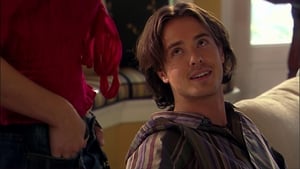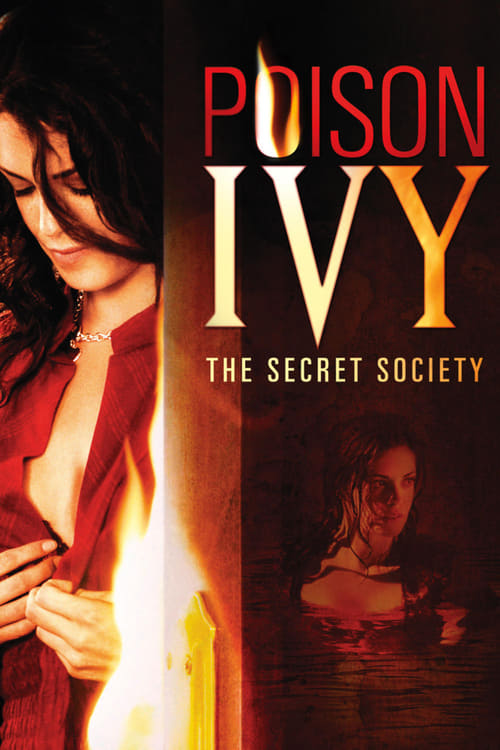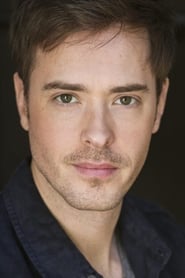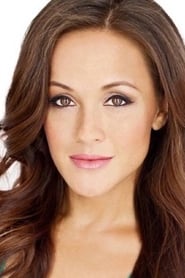Cast
View AllMiriam McDonald
as Danielle 'Daisy' Brooks
Shawna Waldron
as Azalea
Ryan Kennedy
as Blake
Yan-Kay Crystal Lowe
as Isabel
Andrea Whitburn
as Magenta
Greg Evigan
as Andrew
Catherine Hicks
as Elisabeth
Michaela Mann
as Monique
Bridie Lunde
as Christa
Brendan Penny
as Will
Agam Darshi
as Nadia
Shaina Tianne Unger
as Tandra
Blake Mawson
as Male Student
Dawn Chubai
as Reporter
Janet Bailey
as Hadrian
Crew
Director
- Jason Hreno
Writer
- Liz Maverick
- Peter Sullivan
- Michael Worth
Producer
- Lindsay MacAdam
Reviews
tmdb28039023
Poison Ivy: The Secret Society is the “sexy girl version of The Skulls” (Wikipedia), but I think it’s more like the 'dumb blonde version.' I'm not saying that the protagonist's intellectual ineptitude is directly related to her gender or hair color; her golden mane and femininity are just an unfortunate coincidence.
Danielle Brooks (Miriam McDonald) is a farm girl — completing the trifecta of stereotypes — who transfers to Berkshire College, an elite New England private school. Danielle sold the property she inherited from her late parents to pay for school, and yet the best she can afford is a work-study program. Oh, and her nickname is Daisy. How do I know all this? It’s all in the "Berkshire Transfer Students Official List," (BTSOL, if you’re into the whole brevity thing) of which we even see a copy. I swear, they could show a character literally reading directly off the script, and it wouldn’t be as dumb as this.
Daisy, by the way, is the name of a flower, as is Azalea (Shawna Waldron), who is the president of the Ivys, a "secret" society that everyone on campus knows about; on the other hand, it must be impossible to keep a secret in a college so small that, as far as we can see, only offers one single, solitary course, attended by all the main characters, and taught by Professor Andrew Graves (Greg Evigan), who is not only married to the dean (Catherine Hicks), but is also the father of Daisy's romantic interest, Blake (Ryan Kennedy).
Azalea learns that Daisy is a shoo-in to get a coveted internship; the former’s plan to prevent this from happening is to get Daisy to join the so-called secret society. “Turning the farm girl into an Ivy won't stop her from getting the internship,” Blake warns her; Azalea's response is "yeah, we'll see about that". Spoiler alert: we never see about that.
What we do see is the Ivy’s vast influence (one can't help but wonder why Azalea doesn't just use this leverage to nab the internship for herself). Once Daisy is accepted, she doesn't have to worry about money anymore; “Who do you think made your financial aid problems go away? Who do you think gave you your scholarship?” Azalea asks rhetorically. To my chagrin, though, she doesn't ask who makes Steve Guttenberg a star.
Do the writers (unbelievably, it took three people to write this movie) really expect us to believe that, on top of selling the family ranch or whatever, Daisy still needs not only a student loan but also a scholarship, or do they just not understand the difference between the two?
I lean towards option B, especially after seeing the way Azalea blackmails Daisy, which involves Will (Brendan Penny), Daisy’s rancher boyfriend whom she left behind (“how do you know about Will,” Daisy asks; my guess is she must have read it on BTSOL).
Azalea claims to "have this piece of paper and at the top it says "title deed", at the bottom, a name and it's "William Miller"." Daisy never even demands to see this document, so she may just be dumb enough to believe that "Will's land" really "is at stake," as Azalea later assures her; moreover, recording Azalea's confession and immediately playing the tape back to her is likewise not the action of a person of at least adequate intelligence.
Sep 14, 2022
Thematic Analysis
As a dramatic work, Poison Ivy: The Secret Society examines complex human relationships and emotional struggles against the backdrop of contemporary challenges that mirror our own experiences. The character development particularly stands out, offering viewers a chance to reflect on their own life journeys.
Director Jason Hreno brings their distinctive visual style to this film, continuing their exploration of themes seen in their previous works while adding new elements. Their approach to character development and emotional depth creates a viewing experience that rewards close attention.
Released in 2008, the film exists within a cultural context that continues to evolve with our understanding of its themes. Its reception demonstrates the diverse reactions to its artistic choices and its place in cinema history.
Did You Know?
- The production of Poison Ivy: The Secret Society took approximately 35 months from pre-production to final cut.
- With a budget of $2.0 million, the film represented a significant investment in bringing this story to the screen.
- The final cut of the film runs for 95 minutes, though the director's initial assembly was reportedly 116 minutes long.
- Several scenes were filmed in multiple locations to capture the perfect setting.
- The musical score contains over 64 unique compositions.
- The film contains approximately 1256 individual shots.
Historical Context
- In 2008, when this film is released:
- The September 11 attacks changed global security and politics.
- Digital technology was disrupting traditional media and entertainment.
- Digital filmmaking technologies were transforming production processes and creating new opportunities.
How This Film Stands Out
While Poison Ivy: The Secret Society shares thematic elements with other films in its genre, it distinguishes itself through its unique approach to storytelling, visual style, and character development.
Unlike Armitage: Dual Matrix, which focuses more on action than character development, Poison Ivy: The Secret Society offers a fresh perspective through its innovative visual language and narrative structure.
While films like Freak Show and Escape Plan 2: Hades explore similar territory, Poison Ivy: The Secret Society stands apart through its deeper exploration of its central themes and more complex characterization.
This film's unique contribution to cinema lies in its bold artistic choices and willingness to challenge viewer expectations, making it a valuable addition to its genre.
Details
- Release Date: April 18, 2008
- Runtime: 1h 35m
- Budget: $1,999,000


















